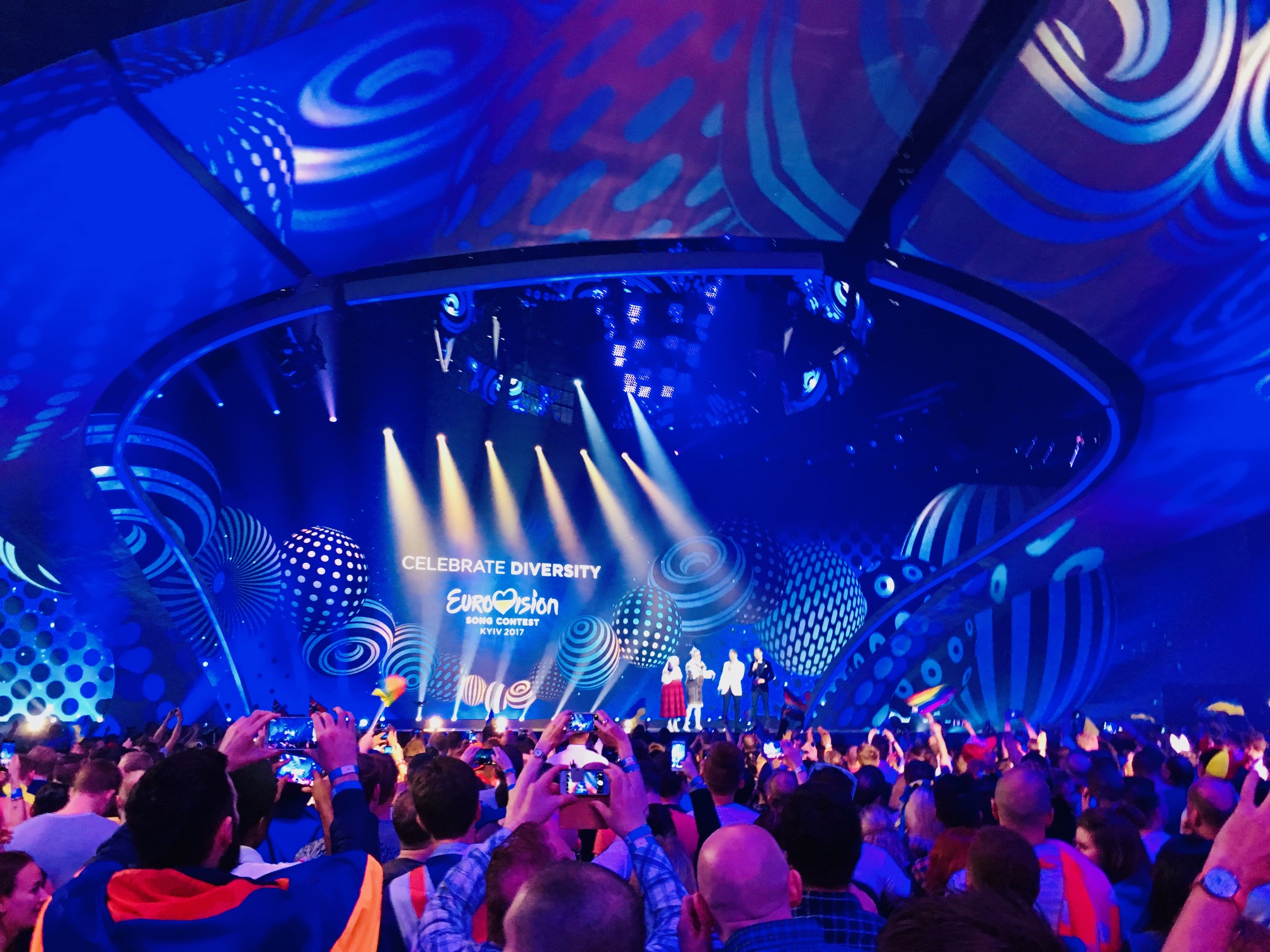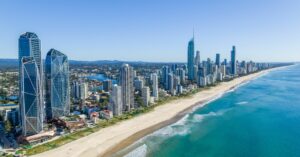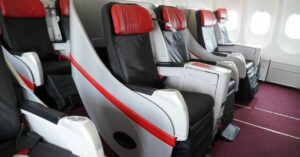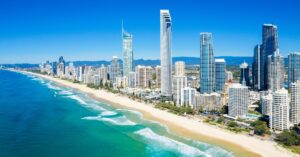Let our Eurovision-obsessed writer count the ways…
“Why is Australia in Eurovision?”
I always meet this question with a sigh. Not a sigh of “do I have to answer this again?”, more of an exacerbated response, one that is filled with excitement, to discuss the reasoning behind Australia’s inclusion in the world’s biggest song contest — “Where do I even begin?”
Eurovision is predominately European-centric. Of course, it’s in the name! Yes, geographically, Australia is on the other side of the world, but that does not mean it has not been influenced by European culture. Australia is built on multiculturalism (Check out our menus, read the roll call of names in the classroom, see the clothes we wear or the sports we play – the influence of these far-flung nations is right here!)
Post Second World War saw an influx of European immigrants starting their lives anew in Australia, including my two sets of Italian grandparents. Australian broadcaster, Special Broadcasting Service (SBS), catered to those immigrants, with multicultural and foreign-language shows on its radio and television networks. Something in the media landscape they could understand, relate to and still appreciate aspects of their culture despite the distance — including Eurovision.
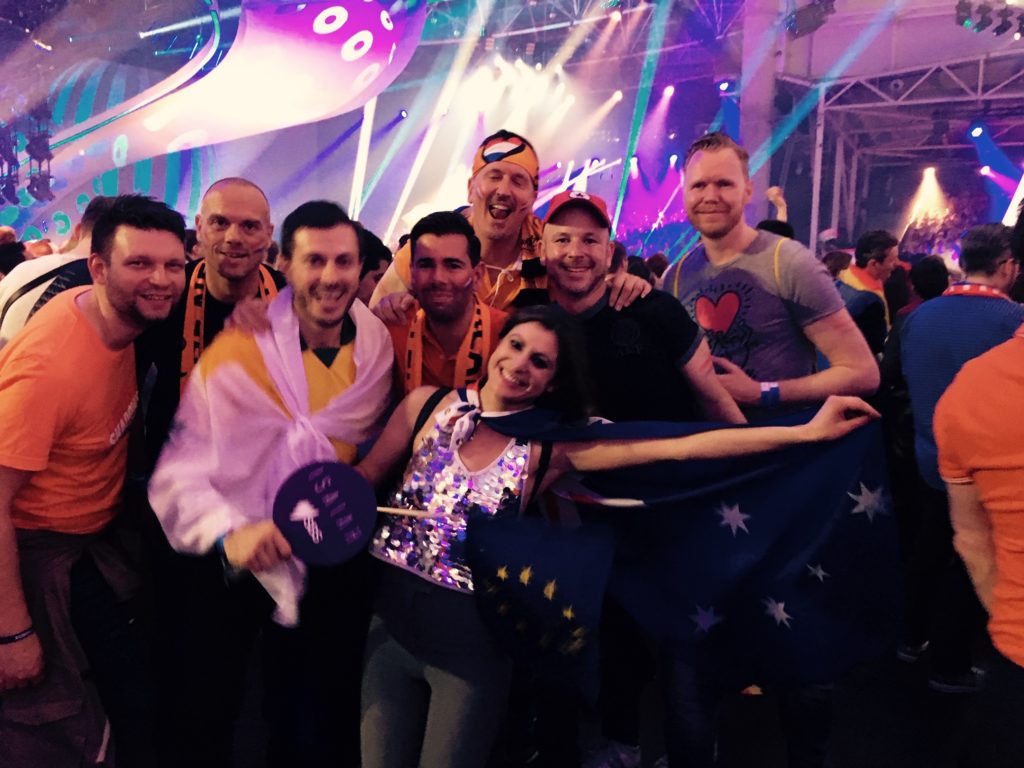
Over time, Eurovision built momentum with the Australian public. After all, Australians love to get in on a good party! Its kitsch, its pop-tastic numbers, out-there fashion choices (Hello satin saints Abba!), its out-of-the-box stage décor, the epic ballads — there were plenty of reasons to fall in love with the contest.
The turning point was when Australia was invited to perform as an interval act in 2014 for the second semi-final in Austria. Jessica Mauboy did Australia proud with her meant-for-Eurovision number, “Sea of Flags”. The song gives me chills just thinking about how her performance resonated with me; to see her weaving Indigenous Australian culture and the Eurovision tradition of waving flags into an uplifting song. Better yet, the unique interval performance presented so many Australian icons in the most fun, colourful and engaging way on stage. Who could forget the koalas, surfers and Australian Rules Football players all making cameos!
We all know what happened after that. Jessica Mauboy’s performance paved the way for Australia to be invited to compete in the contest the following year with Guy Sebastian, Dami Im, Isaiah and Jessica Mauboy representing Australia in their respective years.
Fast forward and part of this uniting song contest hit Australian shores. It fills me with a sense of pride that Australia now hosts a Eurovision event, Australia Decides, on home soil along Queensland’s Gold Coast. The event runs similar to other Eurovision national finals, taking cues from Italy’s long-running San Remo Music Festival and Sweden’s Melodifestivalen. A shortlist of artists and songs is chosen by production partner Blink TV with a jury and TV audience voting for the winner.
To align it with the main contest, Australia Decides also has its own postcards segment, a great way to showcase the state of Queensland to the rest of the country and those tuning in from all corners of the globe online.
Europe may be far, but Eurovision fever is contagious down under. Fans may be distant, but the dedication, the excitement and the buzz are not that much different to what happens at any Eurovision Song Contest.
Now it is the Australian public’s chance to make history. Australians now have a say of who will be the beacon of light and sound on stage and do us proud, regardless of the final place setting.
Now it is our chance again, to share in some European magic.
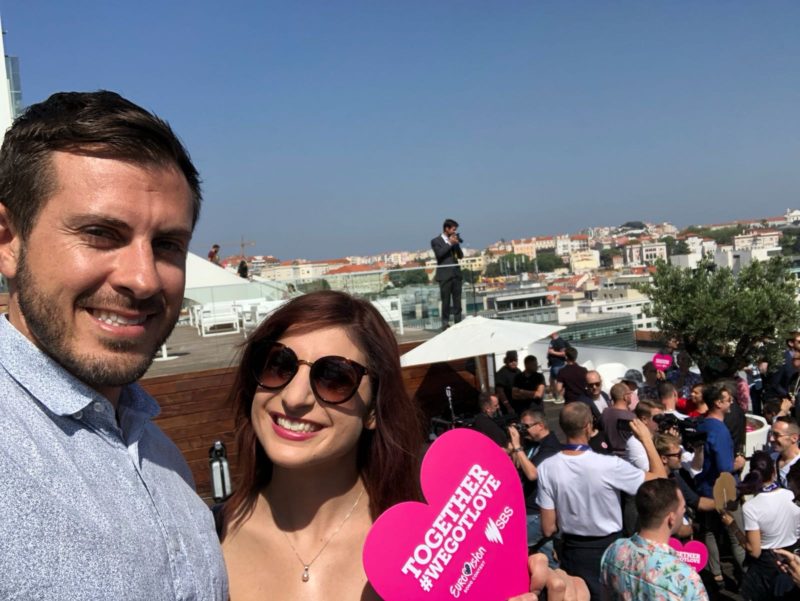
I admit I had my doubts about how Australia will be pulling off the inaugural Australia Decides contest last year. At first, I expected the event stage set up to be sub-par, dare I say second-rate to what I have seen over the past few years in Ukraine and Portugal. I am glad my scepticism proved me wrong. The thought process and execution of the staging far exceeded my expectations with the stage and sound production nothing less than deserving of a euphoric reaction. We’re going up, up up up!
In that moment of laying eyes on the stage at the Gold Coast Convention Centre, I knew Australia was taking the decider event seriously – because as if our talent hasn’t been taken seriously before!) No longer was Australia’s entry a gimmick; the novelty factor was over.
Hosts Myf Warhurst and Joel Creasey proved to be exceptional hosts, injecting humour into their hosting duties while making it abundantly clear that they are also, big-time fans of the contest itself. Thankfully too, it wasn’t just the hosts loving the contest with the crowd whipped up into a frenzy. The contest is very much niche, and those very dedicated Eurovision-loving fans made the ultimate pop pilgrimage to the Gold Coast to meet with like-minded, glittery folk who were only happy to oblige with having sore throat and feet by the end of the night.
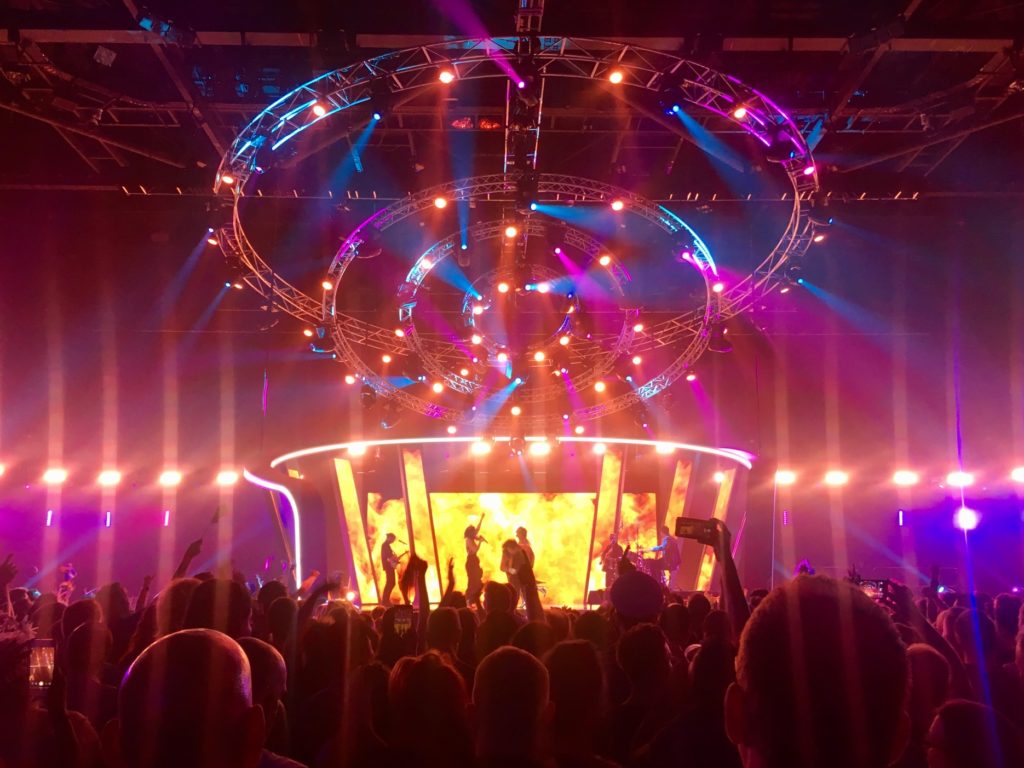
Ten acts performed but I’ll never forget the crowd’s excitement over the arrival of Eurovision’s epitome of kitsch being brought to the stage by music veteran Kate Miller-Heidke. Seeing her first performance, looking like a tall Strawberry Shortcake-like angel on stage with a pop-bender dementor behind her, I just knew we would all be seeing her sing metres above us on stage in Tel Aviv. When she was on stage, singing her anthem on depression, ‘Zero Gravity,’ the crowd went crazy. It would have been hard-pressed to find anyone in the crowd who had seen a performance like it – we hadn’t – and we wanted more. Her operatic vocals, her costuming, set design – this was our Eurovision moment. Kate Miller-Heidke had to go to Tel Aviv, and thankfully, the Australian public agreed, and she did.
She didn’t disappoint, and her performance only generated more Eurovision buzz with the Australian public.
The result? More Aussie eyes were looking at Europe than ever before. According to EBU statistics, 412,000 viewers tuned into watching the song contest and Kate Miller-Heidke showing us with ease how to perform opera on a tall, bendable pole. (A 54% increase from the previous year!)
We have been told that Australia Decides 2020 is going to be bigger and better. Besides the ten artists vying to represent Australia in Rotterdam, the event will also feature performances by past Eurovision entrants, Dami Im and Kate Miller-Heidke. Swedish Eurovision royalty, Måns Zelmerlöw will also give the contest that extra bit of Eurovision star power.
Australia is in Eurovision as it resonates with generations like the many in Europe, that grew up with the song contest. The future of Australia Decides event at the Gold Coast is nothing short of bright – pun intended. And, if you needed a good excuse to come to Australia, come for the song and stay for the surf.
Eurovision: Australia Decides airs Saturday, Feb 7 on SBS.
See more: Latest stories



